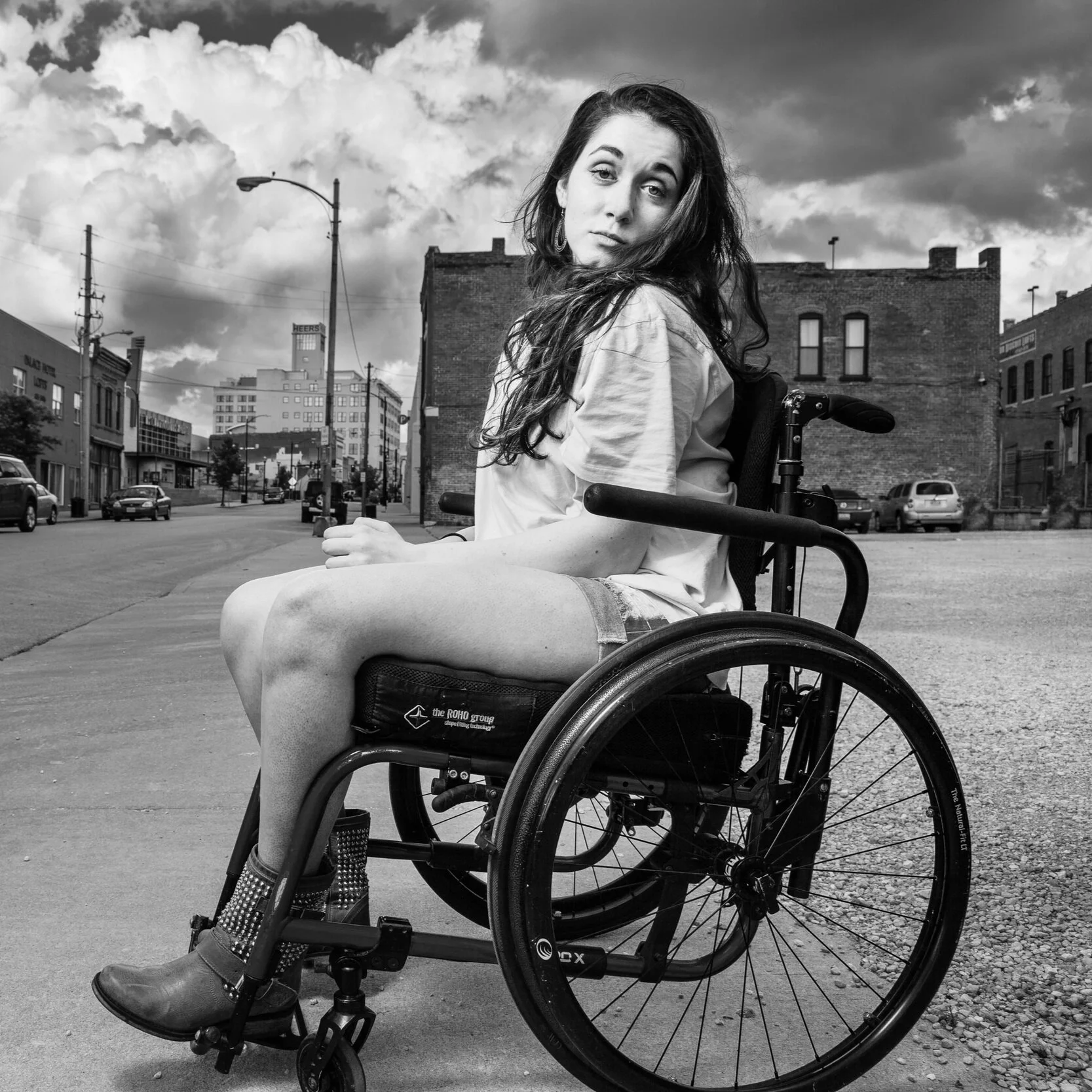Fallon - Chapter 2 "The Dating Game"
PHOTOGRAPHY BY RANDY BACON
Introduction:
Today's dating scene can be weird and tough enough for a "normal, healthy person", but what is it like for a 20-something living with "invisible illnesses" like Ehlers-Danlos syndrome, Sjogrens syndrome and gastroparesis? We posted Fallon's story, Chapter 1, previously where, beginning at 11-years-old, her life changed drastically. Many parts of her life changed, including "The Dating Game".
"Everyone has a story, everyone has a past and, yes, everyone hides secrets. Typically, people omit all negatives about themselves when they meet a new potential suitor, but how much is too much to leave out? When I’m on a new date, I usually ask myself why are they single? What could be wrong with them? For me, I used to think it was blatantly obvious why I was single.
As I said earlier, everyone has their own story, but when it involves having a disability, it can be heartbreaking and exhausting to endure yet another date’s reaction after divulging the details of the illness that constricts me. The reactions were always across the board and were usually followed with dozens of questions and blatantly terrified looks. But I was determined to show men not judge a book by its cover.
Fallon --- December 2014 with her feeding tube
Once I finally accepted that baggy shirts didn’t hide my “imperfections,” parking further than I should to hide my disabled license plate was just irrational and clenching my legs constantly to stand properly was too much work, I felt better just being me — undeniably imperfect me. Why be fake and inauthentic when other warriors like me have been the realest, strongest people I’ve had the pleasure to meet and read about.
Our physical “discrepancies” — like my own feeding tube, 6-inch mid-line scar, gastric pacemaker and slight ambulatory awkwardness — don’t make us less attractive or of lesser value than any other able-bodied person. Yet somehow I allowed it to dictate my attitude with each new person who entered my life last year. I expected them to leave because I was too much to handle or a burden. I was my own worst enemy meeting others and dating because I wanted to stay “closeted.” So my advice to other women with chronic illnesses who may be pushing themselves to be normal and ordinary: Don’t.
Trust me, I’ve tried and failed miserably. It ends up putting your illness into a fast-forward mode. Even after a handful of people walked out on dates because they could see my tube through my shirt, I still have no regrets and realize that having this rare illness is a great weed-out process. Superficial and material assets will not overpower a chronic illness, so at least we know someone is with us for our actual selves.
We all know the phrase, “In sickness and in health.” Well, ladies and gentleman, at least we already have the sickness part covered. And if someone is with us now, he or she knows what’s on the table and loves us for who we are. That, to me, gives people with chronic illnesses a defying and unusual advantage. If we are honest and true to our potential partners about our potential life challenges, then I believe that relationship will be unforgivably raw, genuine and deep.




